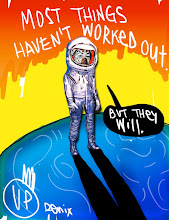This essay was originally delivered during the AWP Conference in Vancouver, B.C., March 30 to April 3. 2005.
• this following sample is taken here from poets.org
...
Langston Hughes was not pretentious about the tenor of his work. In choosing to be an architect, he had to imagine his role. That imagining is never accurate. All too often any poet will simply not know who cares whether he lifts pen to another page ever again in life. How else was Hughes to be famous given the exigencies of the blatant racial hatred during his lifetime? What are the requirements for fame today?
If American society has progressed, it should have done so such that fame has other requirements and, concurrently, poets such as Hayden who are more interested in simply being poets have more space to be, although there is no such thing as "simply" being a poet. Critical specificity requires more. Hayden and Wright are poets who write with less concern to the complexities of race and racism, and some consideration of this choice of theirs might illumine this idea of black male poetics.
Conversely, there is the black constituency that believes the urge to use one’s gifts with a focus on craft is whiteness and cultural betrayal to an ideal of blackness.This notion of betrayal is nonsensical and steeped in a lingering anxiety born in the space between black and white as evidence shows that the desire to have fame and greatness extend over the globe, even as they manifest differently according to cultural difference. The urge does live. The more sensible line of questioning out of all of this, I maintain, is whether we as citizens in an increasingly smaller and complex world need poets to continue with phallic notions of conquest inherent in greatness or aspire to newer notions of community, notions made possible by concentrating on one’s own development first, that kind of selflessness. The desire to fame and greatness is exploration of the opportunities to extend one’s self, which is not ascension to the sublime. If we look at the movement from Hughes to Hayden to Wright in this way we might see a journey toward selflessness in this thing we call black male poetics, selflessness as opposed to the quest for greatness that is more an earmark of patriarchy than anything.









No comments:
Post a Comment